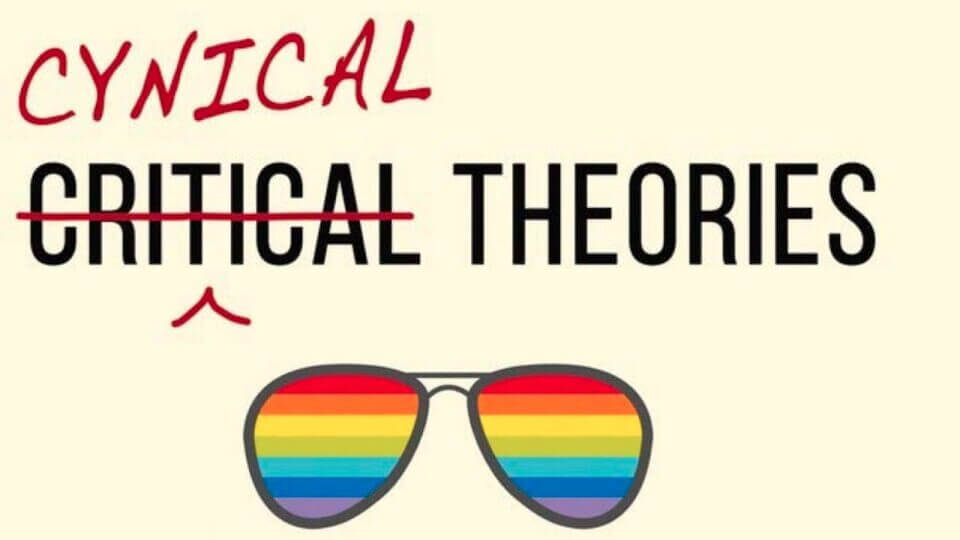
“…it is hard to avoid the conclusion that the authors might have profitably started with an opening chapter dedicated to early American identity politics as well as postmodernism.”
A number of the best studies of Theory are written by fervent critics of the development of Theory. These range from the more general to more specific critiques of literary theory; Higher Superstition by Paul R. Gross and Norman Levitt is an example of the former, while Literature Lost by John M. Ellis represents an instance of the latter.
This new volume belongs to the first of these categories, and it is evidently an attempt to provide an alternative to a classic in the category, namely Alan Sokal and Jean Bricmont’s book Intellectual Impostures. Interestingly, like that earlier study, this new volume emerged out of an academic sting. Sokal famously submitted a hoax academic paper to the journal Social Text, which was duly peer-reviewed and published in its 1996 spring/summer issue. Cynical Theories stems from the so-called “Sokal Squared” hoax. Along with academic Peter Boghossian, the authors of Cynical Theories submitted a slew of fake academic articles to a number of academic publishers, the inevitable outcome of which was that a number of the pieces were accepted and published after peer review.
Rather than simply publish the papers, which no doubt would have offered a rather amusing collection, Pluckrose and Lindsay chose to use their notoriety to publish an extended critical study of Theory. The volume is an outstanding critical guide to several decades of Theory as well as postmodernism and what the authors call “Social Justice scholarship and thought.” The book’s structuring and more sweeping chapters deal with a) postmodernism in its purest form (Chapter 1), b) the separate types of Theory, including Social Justice thought, which emerged out of postmodernism (Chapter 2), and c) how “liberalism without identity politics” remains the best means of intellectual orientation today (Chapter 10). The other chapters first hone in on postcolonialism, queer theory, critical race theory, and feminism and gender studies (along with intersectionality); the study then turns to disability and fat studies, before a full exploration of the scholarship of “Social Justice” (not to be confused with social justice) and an account of how that theory impacts the world outside of academia.
In a sense, Social Justice thought is the telos these developments are leading to. But the earlier chapters are not simply preparatories. We are forever coming across and facing the challenges represented by each of these theories, and separate critical takes on them are of enormous value. The fact that it is also a history of these developments also means that the volume might be used in (highly critical) university courses about Theory, though—quite clearly—not every university would accommodate a course about theory which is as critical as this study.
This volume deserves all the plaudits it is getting, but it could perhaps have been an even better book. Writers who take on this episode in intellectual history invariably face one or two hazards connected to the delimitation of the subject. It could be argued that what is covered in a volume like this one is actually the latter part of a single episode in intellectual history, specifically the latter part of the history of the so-called “cultural turn.” That episode begins with György Lukács and Antonio Gramsci, continues with the Frankfurt School, and proceeds to the developments discussed in this book, which include postmodernism and identity politics. And one might conclude that it is difficult to render the latter part of this history fully comprehensible without attending to the earlier stages—the roots, as it were. Aware of this issue, the authors provide a long discursive endnote about Critical Theory (the very first endnote). However, a reader could feel that a more substantial account (an appendix?) might have been useful.
One specific omission counts as the most salient. European (largely French) postmodern theory is the main-text starting point for the seismic changes discussed in this study. It is true that certain pre-postmodernists are also integrated into the sweep (Fanon, for example), but French postmodernism provides us with the all-important turning point. What this means is that there is insufficient focus on 1960s homegrown American political activism, which burgeoned partly independently of European developments.
In the United States, identity politics began to assert itself before and without the influence of Foucault and, more generally, the postmodernist part of the cultural turn. In his still compelling account of the rise of identity politics, The Twilight of Common Dreams, Todd Gitlin speaks of the early 1960s—the world of not just the Black Panthers and the personality of Malcolm X but also the militants of the Student Nonviolent Coordinating Committee—as the crucible out of which identity politics emerges. This, argues Gitlin, is when identity-driven separatism burgeoned for the first time: when transracial politics and universalism (closely associated with Martin Luther King Jr.) started to fail. (There are no references to Malcolm X or the Black Panthers in the book.) And ideas we might associate with postmodernism can also be traced back to this American context as well. The notion that “the personal is political” might make us think of Foucault; however, as Gitlin reminds us, it was the slogan of the late-1960s American women’s movement.
To adapt the metaphor employed by the authors, the early part of the story of these developments is actually suggestive of a double-trunk tree, which becomes single after “grafting.” The absence of these developments amounts to a lacuna in this volume. If we are to understand contemporary Social Justice thinking, these developments must be given greater consideration. They are obviously integral to the intellectual make-up of today’s cultural radicalism. If an appendix on the earlier part of the cultural turn might have sufficed, it is hard to avoid the conclusion that the authors might have profitably started with an opening chapter dedicated to early American identity politics as well as postmodernism.
Brian Russell Graham is an academic and author. He teaches “The Circle of Stories: Literature and Genre,” offered as part of University of Copenhagen’s International Summer Programme. 2021 will see the publication of his new monograph, On A Common Culture (Zer0 Books).











